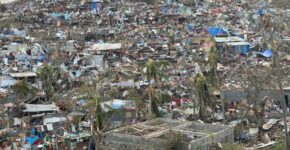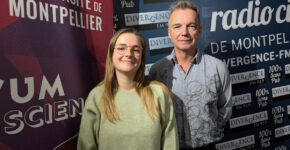
Wasps, bugs, gnats: is the decline of insects really that serious?
Content type: Calendar

Mini-symposium on Sustainable Chemistry for Health and Energy: from LABUM to PTLs
Content type: Calendar

Taking action on climate change: how will science-society interactions change?
Content type: Calendar


[LUM#22] Governing data
Content type: Podcast ,
LUM Magazine
Published on: January 14 , 2025
Artificial intelligence relies on the existence of data in terms of quantity and quality...



Mayotte: rethinking urbanization
Content type: The conversation
Published on: December 20 , 2024
On December 14, 2024, Mayotte was swept by tropical cyclone Chido, with a human toll...

Science at UM [S04-ep13]: A best-of for the 100th episode
Content type: Podcast
Published on: December 19 , 2024
This week on A l’UM la science, no guests, but a best-of compilation put together for the occasion...

Awareness of research data rights
Content type: Calendar

Predatory publishers
Content type: Calendar

Launch of the eLab FTW electronic laboratory notebooks at UM
Content type: Calendar

Submitting research data: Research Gouv and Data
Content type: Calendar

Publishing in Open Access: the diamond model
Content type: Calendar

[LUM#22] In search of lost glaciers
Content type: Podcast ,
LUM Magazine
Published on: December 17 , 2024
To study glaciers, geologists use satellite images. It's a long and...

Science at UM [S04-ep12]: Coo-Innov: innovation strategies of French companies
Content type: Podcast
Published on: December 12 , 2024
This week on Science at UM, Camille Bildstein and Frédéric Leroy, from the chair...